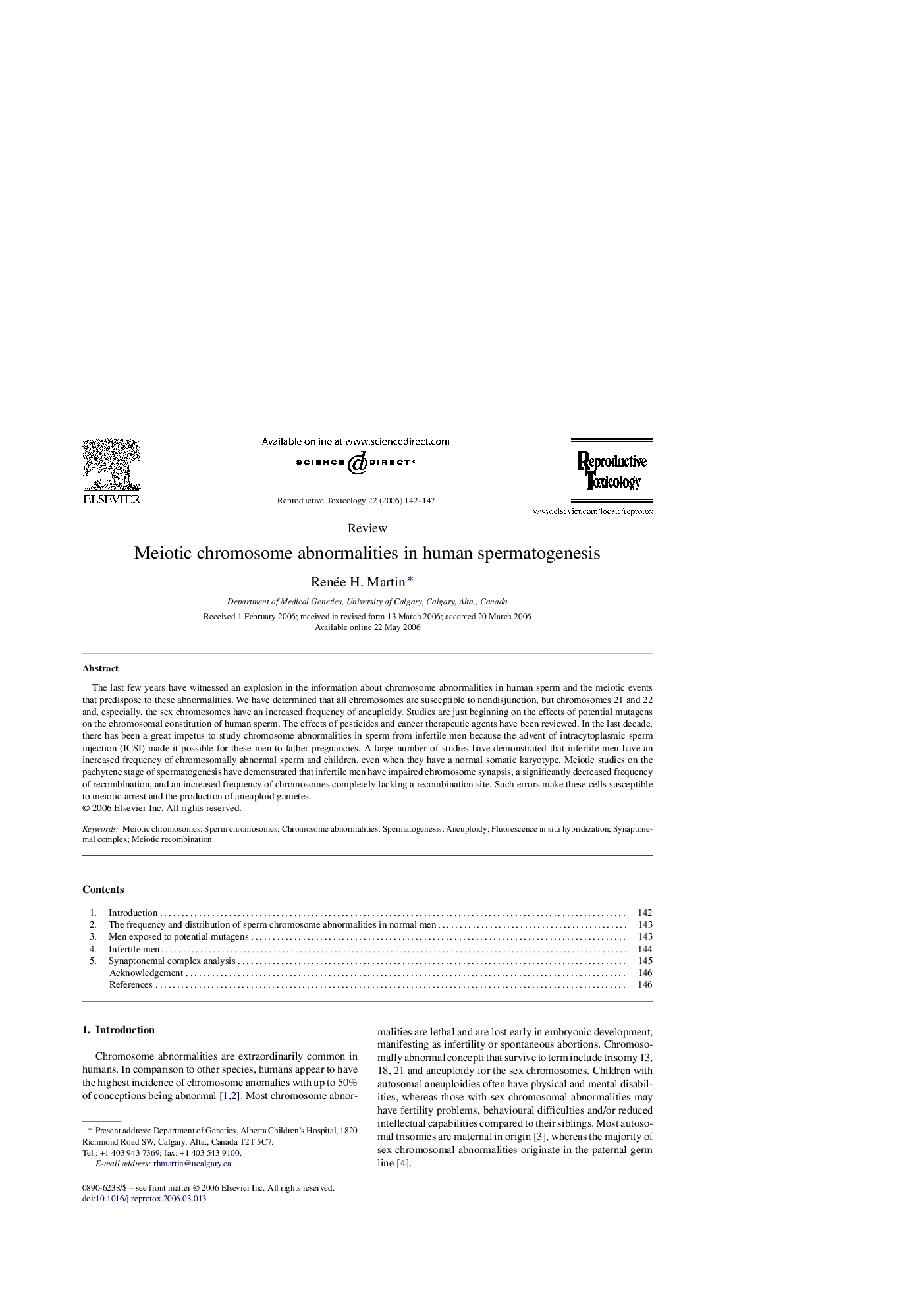| Article ID | Journal | Published Year | Pages | File Type |
|---|---|---|---|---|
| 2594866 | Reproductive Toxicology | 2006 | 6 Pages |
The last few years have witnessed an explosion in the information about chromosome abnormalities in human sperm and the meiotic events that predispose to these abnormalities. We have determined that all chromosomes are susceptible to nondisjunction, but chromosomes 21 and 22 and, especially, the sex chromosomes have an increased frequency of aneuploidy. Studies are just beginning on the effects of potential mutagens on the chromosomal constitution of human sperm. The effects of pesticides and cancer therapeutic agents have been reviewed. In the last decade, there has been a great impetus to study chromosome abnormalities in sperm from infertile men because the advent of intracytoplasmic sperm injection (ICSI) made it possible for these men to father pregnancies. A large number of studies have demonstrated that infertile men have an increased frequency of chromosomally abnormal sperm and children, even when they have a normal somatic karyotype. Meiotic studies on the pachytene stage of spermatogenesis have demonstrated that infertile men have impaired chromosome synapsis, a significantly decreased frequency of recombination, and an increased frequency of chromosomes completely lacking a recombination site. Such errors make these cells susceptible to meiotic arrest and the production of aneuploid gametes.
